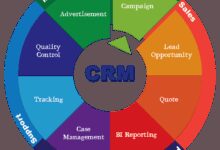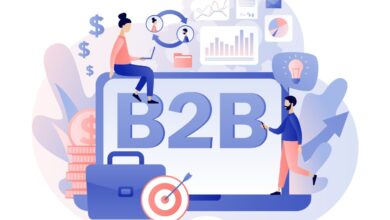B2B Meaning: 7 Powerful Insights You Must Know
Ever wondered what ‘b2b meaning’ really stands for? It’s more than just business jargon—it’s the backbone of global commerce. Let’s break it down in simple, powerful terms.
B2B Meaning: The Core Definition and Why It Matters

At its heart, the b2b meaning refers to ‘business-to-business’—a model where companies sell products or services to other businesses, not individual consumers. This distinction is crucial in understanding how industries operate, collaborate, and grow.
What Does B2B Stand For?
The acronym B2B stands for ‘Business-to-Business.’ Unlike B2C (Business-to-Consumer), where companies sell directly to end-users, B2B transactions occur between two business entities. For example, a software company selling CRM tools to another corporation is a classic B2B scenario.
- B2B involves long-term contracts and bulk orders.
- Decision-making is often complex, involving multiple stakeholders.
- Sales cycles are typically longer than in B2C.
“B2B is not just a transaction; it’s a relationship built on trust, value, and mutual growth.” — Forbes
Historical Evolution of B2B Commerce
The concept of B2B isn’t new. Long before the internet, manufacturers supplied raw materials to producers, and wholesalers distributed goods to retailers. However, the digital revolution has dramatically transformed how B2B operates.
In the 1990s, the rise of e-commerce platforms like Alibaba and early ERP systems began streamlining supply chains. Today, B2B e-commerce is projected to reach $2.8 trillion by 2027, according to Forrester Research.
- Pre-internet era: Trade was localized and paper-based.
- Dot-com boom: Digital marketplaces emerged.
- Modern era: AI, automation, and data analytics drive efficiency.
B2B Meaning in Practice: Real-World Examples
Understanding the b2b meaning becomes clearer when we look at real-world applications. These examples illustrate how B2B relationships power entire industries.
Manufacturing and Supply Chain Partnerships
One of the most traditional forms of B2B is in manufacturing. A car manufacturer, for instance, doesn’t produce every component in-house. Instead, it sources tires from Michelin, electronics from Bosch, and steel from ArcelorMittal.
This interdependence creates a vast network of B2B relationships. Each supplier must meet strict quality, delivery, and compliance standards, making these partnerships strategic rather than transactional.
- Just-in-time (JIT) inventory systems rely on precise B2B coordination.
- Global supply chains depend on seamless communication between businesses.
- Disruptions in one link can affect the entire chain (e.g., semiconductor shortages).
Software as a Service (SaaS) for Enterprises
The tech industry has redefined the b2b meaning through SaaS platforms. Companies like Salesforce, Slack, and Zoom provide tools that other businesses use to operate efficiently.
For example, a marketing agency might use HubSpot (a B2B SaaS) to manage client campaigns, automate emails, and track ROI. The agency doesn’t sell HubSpot to consumers—it uses it internally to deliver better services.
- SaaS models often use subscription-based pricing.
- Integration with existing systems is a key selling point.
- Customer success teams ensure long-term client retention.
“SaaS has turned B2B software from a product into a service-driven relationship.” — TechCrunch
B2B Meaning vs. B2C: Key Differences You Need to Know
While both B2B and B2C involve selling, their strategies, audiences, and processes differ significantly. Grasping the b2b meaning requires understanding how it contrasts with B2C.
Target Audience and Decision-Making
In B2B, the buyer is usually a company or organization, not an individual. Purchasing decisions are made by committees, procurement teams, or executives who evaluate ROI, scalability, and integration capabilities.
Conversely, B2C targets emotions, convenience, and personal needs. A consumer might buy a smartphone based on design or brand loyalty, while a business buys software based on security, support, and total cost of ownership.
- B2B: Rational, data-driven decisions.
- B2C: Emotional, impulse-driven purchases.
- B2B sales often require proposals, demos, and negotiations.
Sales Cycle and Relationship Depth
The B2B sales cycle is typically longer and more complex. It can take weeks or even months to close a deal, involving multiple touchpoints like discovery calls, product trials, legal reviews, and contract signing.
In contrast, B2C sales are often immediate. You see a product online, add it to your cart, and check out in minutes. B2B relationships, however, are built on long-term contracts, ongoing support, and continuous value delivery.
- B2B focuses on lifetime customer value (LTV).
- B2C emphasizes volume and speed of transactions.
- B2B clients expect dedicated account managers.
Key Components of a Successful B2B Model
To thrive in the B2B space, companies must master several core components. The b2b meaning extends beyond transactions—it’s about creating sustainable business ecosystems.
Value Proposition and Solution Selling
In B2B, customers don’t buy products; they buy solutions. A cloud storage provider doesn’t just sell gigabytes—it sells data security, compliance, and disaster recovery.
This approach, known as solution selling, requires deep industry knowledge. Sales teams must understand the client’s pain points, regulatory environment, and operational challenges to position their offering effectively.
- Focus on outcomes, not features.
- Use case studies and ROI calculators.
- Offer customizable packages.
Customer Relationship Management (CRM)
CRM systems are the backbone of B2B operations. Platforms like Salesforce, Microsoft Dynamics, and Zoho help businesses track interactions, manage leads, and forecast sales.
Effective CRM usage allows companies to personalize communication, anticipate needs, and reduce churn. For example, if a client hasn’t logged into their software in 30 days, the CRM can trigger a check-in call from the customer success team.
- Centralizes client data across departments.
- Enables automation of follow-ups and reporting.
- Improves cross-selling and upselling opportunities.
“In B2B, the sale doesn’t end at purchase—it begins.” — Harvard Business Review
Technology and Digital Transformation in B2B
The digital age has revolutionized the b2b meaning, making technology a central pillar of modern B2B commerce. From AI to blockchain, innovation is reshaping how businesses interact.
E-Commerce Platforms and Marketplaces
Just as consumers shop on Amazon, businesses now buy on B2B marketplaces like Alibaba, ThomasNet, and Amazon Business. These platforms offer product catalogs, instant quotes, and streamlined procurement.
For suppliers, these marketplaces increase visibility and reduce sales overhead. For buyers, they simplify sourcing and enable comparison shopping across global vendors.
- Alibaba connects manufacturers with distributors worldwide.
- Amazon Business offers business-only pricing and tax-exempt purchases.
- Integration with ERP systems automates order processing.
Artificial Intelligence and Automation
AI is transforming B2B marketing, sales, and customer service. Chatbots handle initial inquiries, predictive analytics forecast demand, and machine learning personalizes content delivery.
For example, a B2B SaaS company might use AI to analyze user behavior and recommend feature upgrades. Or a logistics firm could use AI to optimize delivery routes and reduce costs.
- AI-powered lead scoring improves sales efficiency.
- Chatbots provide 24/7 support for technical queries.
- Automation reduces manual errors in invoicing and fulfillment.
Challenges in the B2B Landscape
Despite its advantages, the b2b meaning also encompasses significant challenges. Companies must navigate complexity, competition, and changing buyer expectations.
Long Sales Cycles and High Acquisition Costs
Acquiring a B2B customer can be expensive and time-consuming. Sales teams invest heavily in demos, trials, and consultations, only to face delays due to budget approvals or internal politics.
According to Capterra, the average B2B sales cycle lasts 2-3 months, with some enterprise deals taking over a year.
- High customer acquisition cost (CAC) requires strong retention strategies.
- Need for multi-touchpoint nurturing (email, calls, content).
- Competition is fierce, especially in saturated markets like SaaS.
Data Privacy and Cybersecurity Concerns
B2B companies handle sensitive data—financial records, employee information, intellectual property. A breach can damage trust and lead to legal consequences.
With regulations like GDPR and CCPA, businesses must ensure compliance across their supply chain. Vendors are now required to prove their security posture before being onboarded.
- Third-party risk assessments are now standard.
- Zero-trust security models are gaining traction.
- Encryption and access controls are non-negotiable.
“In B2B, your security is only as strong as your weakest vendor.” — Cybersecurity Insiders
Future Trends Shaping B2B Meaning
The b2b meaning continues to evolve. Emerging trends are redefining how businesses connect, sell, and grow in a digital-first world.
Subscription-Based and Outcome-Based Models
More B2B companies are shifting from one-time sales to subscription models. Instead of buying software outright, clients pay monthly for access, updates, and support.
Even more innovative is the rise of outcome-based pricing—where clients pay based on results. For example, an energy company might pay a vendor based on the amount of electricity saved, not the number of sensors installed.
- Aligns vendor success with client outcomes.
- Encourages continuous innovation and support.
- Builds deeper, trust-based relationships.
Sustainability and Ethical Sourcing
Today’s B2B buyers care about more than price and performance. They demand sustainability, ethical labor practices, and environmental responsibility.
Companies like Unilever and Patagonia now require suppliers to meet strict ESG (Environmental, Social, and Governance) criteria. This trend is pushing B2B relationships toward greater transparency and accountability.
- Carbon footprint tracking is becoming standard.
- Green certifications influence procurement decisions.
- Supply chain transparency builds brand trust.
What is the basic b2b meaning?
The basic b2b meaning refers to business-to-business transactions, where one company provides products or services to another company, rather than to individual consumers. This model is foundational in industries like manufacturing, technology, and wholesale distribution.
How does B2B differ from B2C?
B2B involves longer sales cycles, rational decision-making, and relationship-driven sales, while B2C focuses on emotional appeal, quick purchases, and mass marketing. B2B clients expect customization, support, and measurable ROI.
What are common B2B business models?
Common B2B models include wholesale distribution, SaaS platforms, manufacturing supply chains, and professional services (like consulting or accounting). Each model emphasizes long-term value and operational efficiency.
Why is CRM important in B2B?
CRM is crucial in B2B because it helps manage complex client relationships, track interactions, and forecast sales. It enables personalized communication, improves customer retention, and supports data-driven decision-making across teams.
What role does technology play in modern B2B?
Technology drives efficiency, scalability, and innovation in B2B. E-commerce platforms, AI, automation, and data analytics enable faster transactions, smarter insights, and enhanced customer experiences across the B2B ecosystem.
Understanding the b2b meaning goes far beyond a simple definition—it’s about recognizing a dynamic, evolving ecosystem that powers global commerce. From supply chains to SaaS, from CRM to AI, B2B is where strategy, technology, and relationships converge. As digital transformation accelerates and buyer expectations rise, companies that master the nuances of B2B will lead the future of business. Whether you’re a startup or an enterprise, embracing the depth of b2b meaning is key to sustainable growth and competitive advantage.
b2b meaning – B2b meaning menjadi aspek penting yang dibahas di sini.
Further Reading:









